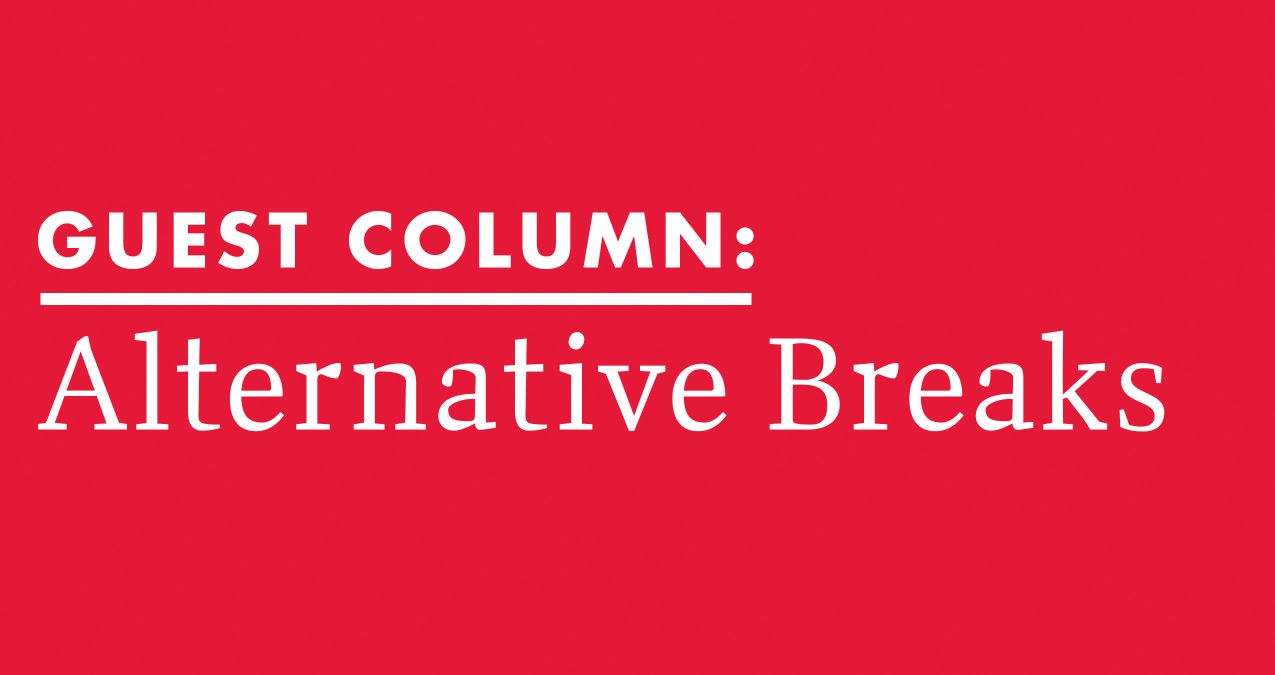
Alternative Breaks
As someone who has been profoundly impacted by the Alternative Breaks program at the University of Maryland, I felt the need to respond to the March 24 opinion column titled “Expanding alternative breaks.” First and foremost, I want to thank the author for critically reflecting on the program and providing some very important insight into what an effective service-learning program looks like. As a former participant and leader and a current student intern with the Alternative Breaks program, I can say feedback and suggestions are highly valued.
I would like to comment on the author’s criticisms individually and directly, but considering the inconsistency among the suggestions, I am going to take a holistic approach. To begin, it is worth mentioning that a large focus of our leadership training is on the language used to describe the experiences, communities and all other aspects of Alternative Breaks. We choose the term “experiences” over “trips” to make it clear from the start that an Alternative Break is not a vacation, but an immersive, learning-based program.
Along with this, the locations are not chosen based on destination or popularity, but rather on the potential they hold for a quality social-issue focus. The experiences are catered to the community, but they are also about nurturing the ability to apply knowledge elsewhere.
To comment on the suggestion that we expand to African and Asian countries, I would like to add that this would drastically increase prices for the experiences, which contradicts the author’s request for lower prices. I cannot discuss prices further without first clarifying that the statement, “most trips cost more than $1,300,” is false.
Out of the 27 experiences from the past winter through this summer, only four cost $1,300 or more, and 20 of the 27 cost $500 or less. The four that are more than $1,300 are international experiences and include flights to and from the country.
Accessibility and affordability are things we consider very closely for every experience. In addition to our use of personal donation pages and team fundraisers, leaders are required to find free or very low-cost housing for their teams, and food costs are limited to $7 per day per person during the service days. The cost of the experience covers only the essentials a participant needs to “live simply,” one of the core components of Alternative Breaks.
Alternative Breaks has a scholarship that is awarded based on need, but this is limited by donations and university support. This fall, Alternative Breaks and associates in the Leadership and Community Service-Learning office successfully met and exceeded a goal of $8,000 for our scholarship fund in a monthlong Launch UMD crowdsourcing campaign. We work to the best of our ability to ensure every student has the opportunity to participate in an Alternative Break experience, regardless of funds, and we hope to continue improving our ability to do so.
I hope Alternative Breaks continues to receive feedback from students about their experiences with program accessibility. We want to be as inclusive and accessible as possible, and if there is anything that students wish to discuss, we encourage them to bring questions and ideas to the office, 1110 Stamp, or to email us at alternativebreaks@umd.edu.
Clare Wise is a senior nutrition and food sciences major and intern for the Alternative Breaks program. She can be reached at clare.h.wise@gmail.com.



